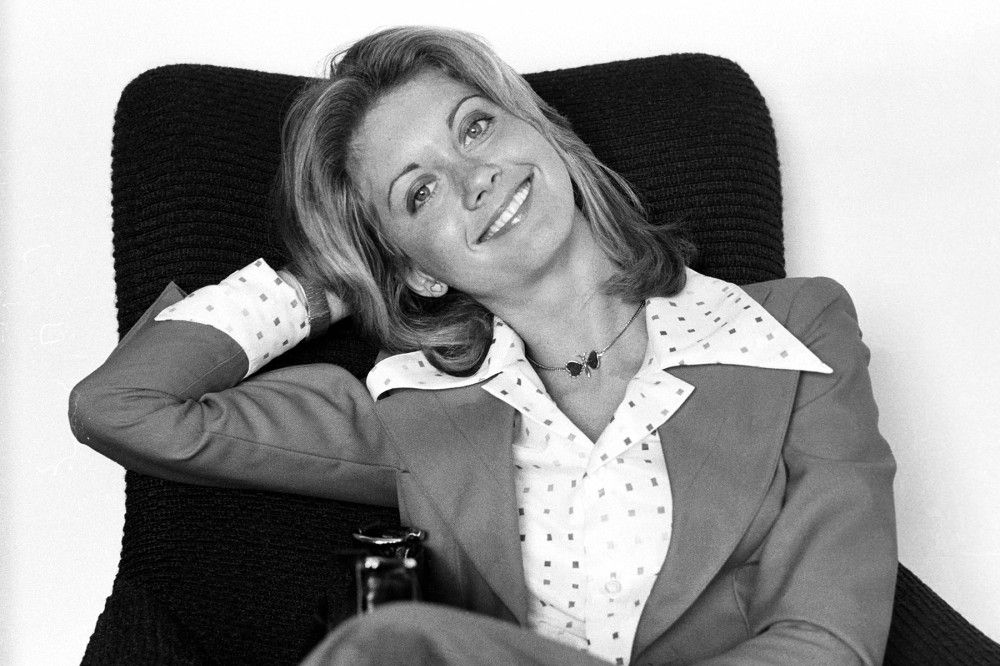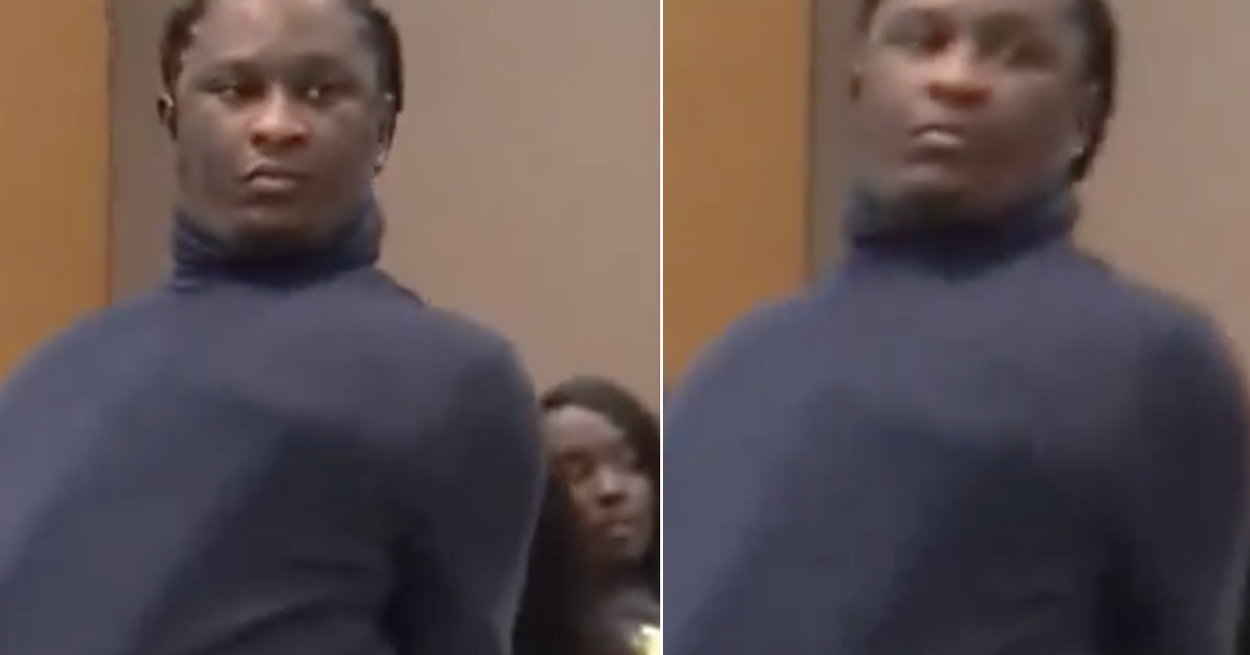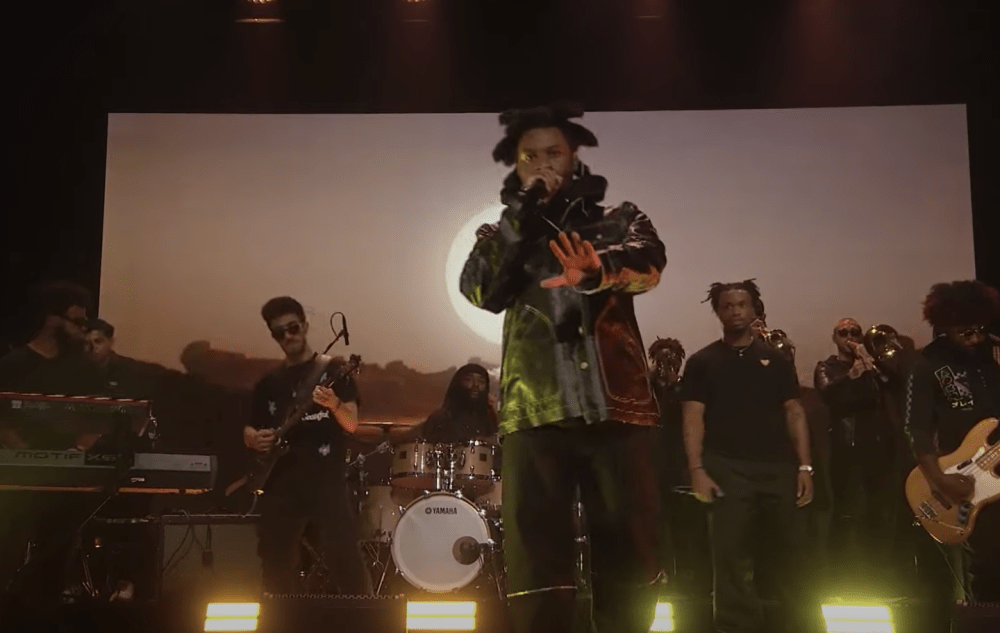
Farewell, Olivia Newton-John: Why We Honestly Loved Her
Farewell, Olivia Newton-John, the eternally beloved pop queen who died Monday at age 73. No Seventies star had a weirder pop trajectory, going from the world’s favorite Australian country singer to a brazen Eighties black-leather New Wave diva in just a few years. But Olivia could do it all: weepy ballads like “I Honestly Love You,” country twang like “Let Me Be There,” Fifties pastiche in Grease. Disco show tunes with Gene Kelly and ELO in Xanadu. Heavy-breathing rock odes to sex like “Magic” and “Make a Move On Me.” These are all reasons why we loved Olivia Newton-John — we honestly loved her — and that’s why pop connoisseurs are mourning for her today.
Olivia could hop from genre to genre, but she threw herself into every style with the same effervescent hyper-glitz enthusiasm, which is why she never sounded the least bit phony. Before fans invented the terminology of stars having “eras,” Olivia perfected the concept, because she hit every stop on the radio dial, from ingenue to Xanadu.
Every fan’s got a favorite ONJ phase, but for me it’s the Seventies AM-radio soft-rock Olivia, when she kept finding new ways to get her heart broken on hit after hit. No happy songs for this lass. She was the star of the Mellow Era who actually had the gall to use the word “mellow” in a song title — her Number One therapy session, “Have You Never Been Mellow?” I still get that tragic feeling from “Don’t Stop Believin’” and “Sam.” But my favorite Olivia ballad will always be “Please Mr. Please,” a country song about sitting in a Nashville bar by the jukebox, begging random cowboys not to play the tune that reminds her of him. “Don’t play B17 / It was our song, it was his song, but it’s over” — she sounded totally forlorn, vulnerable, but also a bit scary.
No other singer could get away with the over-the-top misery of “I Honestly Love You.” Olivia confesses her doomed crush on somebody she can never have, in her breathy whisper. She humiliates herself line by line, resigned to her heartbreak, refusing to even entertain the idea this notion might not be a total disaster. (She doesn’t even give her crush a chance to think about it.) “If we had both been born, in another place and time / This moment might have ended with a kiss” — the way her voice trembles on that line is always a punch in the aorta.
She grew up in Australia, the granddaughter of the Nobel Prize-winning physicist Max Born. She had an early go at English folk-pop stardom in the Sixties — with her angelic chirp, blonde hair, blue eyes, and blinding white teeth, she was like a G-rated version of Marianne Faithfull. In the 1970 sci-fi flop Toomorrow (yes, it’s spelled that way), she played the singer of a U.K. pop group abducted by aliens, but not even Olivia could save that concept.
Her first big splash came when she swerved into country music, in her long-running partnership with writer-producer John Farrar. She scored her first hit in 1971 covering Bob Dylan, of all people, “If Not For You,” soon followed by “Let Me Be There.” It was controversial when she won a country Grammy, but it was a flat-out scandal when this Aussie interloper won the Country Music Association award for Female Vocalist of the Year. George Jones and Tammy Wynette were so outraged, they organized other Nashville veterans in a CMA boycott and founded the “Association of Country Entertainers.” It didn’t last. (The next year, the top CMA award went to John Denver; when presenter Charlie Rich read the name from the envelope, he pulled out a lighter and burned it right there on the podium. Damn, country singers were mighty feisty about awards back then.)
After so many years as the most wholesome of pop singers, her Grease makeover in 1978 was a turning point. Like Sandy in the movie, Olivia got in touch with her bad-girl energy. The Grease soundtrack album became its own pop-culture phenomenon — it was one of those hit albums that people just refuse to stop buying, right up to the end of the century. “You’re the One That I Want” might have been a ringer — it had nothing to do with the Broadway musical or the Fifties concept. But it blew up into one of the era’s most irresistible hits: Olivia’s growl, John Travolta’s wounded yelps, that massive bassline, and a repeat-the-chorus outro that goes on forever, yet somehow always ends too soon.
Grease ended her Sandra Dee phase — once Olivia discovered the joys of black leather and sultry pouts, there was no turning back. Her next move was Totally Hot, where she sexed up her music and finally broke up with sad songs. She got more popular than ever. “I love commercial music,” John Lennon said in 1980, right before his death. “I like Olivia Newton-John singing ‘Magic,’ and Donna Summer singing whatever the hell it is she’ll be singing. I like the ELO singing ‘All Over the World.’ I can dissect it and criticize it with any critic in the business.’”
“Physical” is rightly her most famous hit — it was outrageous not because it was so explicit, but because it was so funny, with Olivia purring, “There’s nothing more to talk about unless it’s horizontally.” This was an era where it was rare to hear radio hits by 30-something adult women about boning their brains out, so the moms went bananas for this one, along with the kids and everyone else. You can hear a sly grin in her voice, but her vocal gets lustier as the song goes on, until the final choruses when she switches to “Let’s get animal! Animal! Let’s get into animal!”
She took the “Physical” grin even further in her unjustly forgotten sequel, “Make a Move On Me” — it’s not as famous, probably because it’s not as filthy, but it’s a song that can aways turn anyone into a Solid Gold dancer. Her Eighties phase came to a fitting climax in 1985 with “Soul Kiss,” one of the era’s most explicit odes to oral sex that isn’t by Prince.
She devoted her later years to philanthropy and family, along with her long, brave public battle with cancer, but she never abandoned music. She recorded albums for Hallmark, plus a touching 1998 remake of “I Honestly Love You” with Babyface. Her best later album is This Christmas, an amazing 2012 set of holiday duets with John Travolta. When Olivia and John do “Baby, It’s Cold Outside,” he’s is the one pleading he has to go home, while Olivia entices him to stay (“Gosh, Liv, I really do have to go,” “Been hoping, John, that you’d drop in”), until he finally shrugs, “Ugh, I’m stayin!” They also sing “Deck the Halls” with James Taylor and “Winter Wonderland” with Tony Bennett.
She inspired a superb tribute 2018 album from indie-rock legend Juliana Hatfield, illustrating how Olivia gave so many shy Gen X girls a voice they could recognize as their own. Juliana Hatfield Sings Olivia Newton-John put her songbook in a new light; Juliana’s “Make A Move On Me” is a real banger. (Olivia loved the album.) In Allison Anders’ 1992 drama Gas Food Lodging, Fairuza Balk is a small-town trailer-park kid who bonds with Donovan Leitch over Olivia’s Greatest Hits, Vol. 2 — he’s obsessed with quoting the line, “We have to believe we are magic,” until she realizes it’s his way of trying to tell her he’s gay.
There’s a touching Olivia shout-out in the 1999 comedy Dick, starring Kirsten Dunst and Michelle Williams as a couple of teen girls who bring down the Nixon administration. Williams breaks into the Oval Office and dictates a message to the President, by singing “I Honestly Love You.” (It turns out to be the 18-minute gap in the Watergate tapes.) Somehow, that moment seems to capture the earnest sincerity that the world alway treasured in Olivia’s voice. Rest in “Magic,” Olivia Newton-John.




